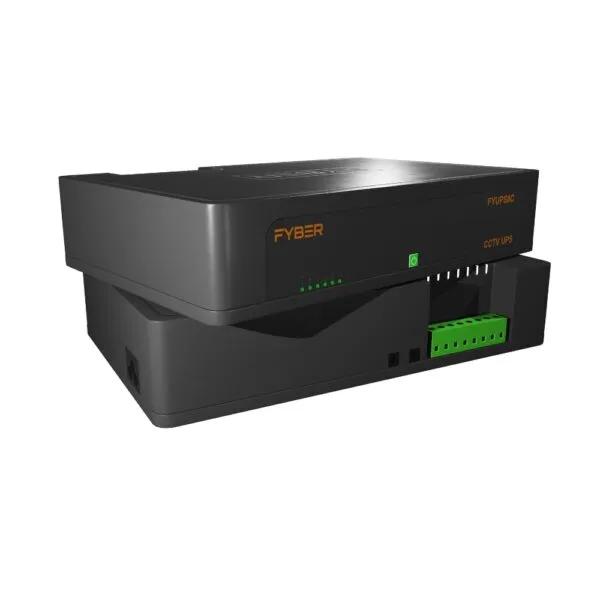-
-
0

Best Practices for Storing and Backing Up CCTV Footage Securely
Modern surveillance relies heavily on CCTV systems as its core foundation. From retail stores to corporate offices, every business relies on CCTV security cameras to monitor activities and protect assets. But installing cameras isn’t enough—businesses must ensure that footage is stored securely and backed up reliably to prevent risks such as loss of footage, cyberattacks, or regulatory challenges.
In this guide, we’ll cover the best practices for CCTV footage storage and backup, explore common mistakes, and recommend how products from leading CCTV camera manufacturers in India, wholesalers, and dealers can help businesses build safer systems.
Why Secure Storage of CCTV Footage Matters
CCTV footage is often used as evidence in security breaches, theft investigations, or compliance audits. Without secure storage, businesses risk:
-
Footage loss from hardware failure.
-
Hackers gaining illegal entry into your security system.
-
Failure to meet CCTV data storage and retention regulations.
That’s why many organizations trust the best CCTV manufacturers and dealers in India for advanced storage and backup solutions. Working with the right CCTV wholesaler ensures you get reliable products that meet both security and legal standards.
Common Mistakes in CCTV Footage Backup & Storage
-
Depending only on local DVR/NVR storage without redundancy.
-
Ignoring data encryption for sensitive video.
-
Ignoring or delaying routine CCTV backup cycles.
-
Storing data without a clear retention policy.
These mistakes often happen when businesses don’t consult trusted CCTV camera dealers or rely on outdated storage setups.
Best Practices for Storing CCTV Footage Securely
Deploy multiple backup storage solutions for added reliability
Depending on just one device can expose your system to risk. The best approach is a hybrid setup—on-premise DVRs/NVRs combined with cloud storage. This ensures continuity even if one system fails.
🔗 Recommendation: Multybyte DVRs & NVRs offer flexible storage, making them a top choice among CCTV wholesalers and security professionals.
Encrypt Your CCTV Data
Protecting video data with encryption blocks unauthorized viewing. Leading CCTV camera manufacturers in India are now integrating encryption features into their devices to help businesses protect data end-to-end.
Set up access permissions based on user roles to enhance security
Not every employee should have access to CCTV security cameras and recordings. Use role-based access control so only authorized staff can download or delete footage.
🔗 Recommendation: Combine your system with Multybyte networking accessories like LAN cables and switches to build secure networks.
Define a CCTV Data Retention Policy
Establish clear policies on CCTV footage retention periods:
-
Retail outlets may need 30 days.
-
Banks or corporate offices may require 90 days or more.
Consulting with CCTV camera dealers ensures your system is configured to meet compliance standards.
Essential guidelines for securely backing up CCTV recordings
-
Enable automatic cloud-based backups to safeguard CCTV data
Automated cloud backups minimize human error and ensure footage is always available—even in case of physical damage. Many of the best CCTV manufacturers now support hybrid cloud integration.
-
Set up a routine schedule for saving CCTV recordings to prevent data loss.
Daily, weekly, or real-time—choose a backup schedule that fits your risk profile. For uninterrupted storage, pair CCTV systems with Multybyte power supplies and storage devices.
-
Regularly verify your backup and restoration procedures to ensure reliability
Run periodic recovery drills to verify that stored data can be restored when needed. This prevents downtime during emergencies.
Cloud vs. On-Premise: Which CCTV Storage is More Secure?
-
Cloud Storage: Flexible and scalable, but requires strong internet and compliance checks.
-
On-Premise Storage (DVR/NVR): Complete control but vulnerable to physical theft or damage.
-
Hybrid Storage: Combines both—making it the preferred solution for many businesses.
🔗 Recommendation: Many CCTV wholesalers in India recommend hybrid storage using Multybyte DVRs/NVRs for reliability.
Choosing the Right CCTV Storage Solution for Your Business
Before investing, evaluate:
-
Storage capacity is based on the number of cameras.
-
Protective measures such as data encryption help safeguard your recordings.
-
Align your video surveillance processes with the compliance regulations relevant to your business.
-
Budget considerations from CCTV wholesalers or dealers.
By working with trusted CCTV camera manufacturers in India, you ensure your business gets future-ready solutions at competitive pricing.
Conclusion
Storing and backing up CCTV footage securely is about more than technology—it’s about business continuity, compliance, and peace of mind. By following best practices like redundancy, encryption, access control, and automated backups, you protect your system from both internal and external threats.
Explore Multybyte’s range of DVRs, NVRs, power supplies, and networking accessories—Trusted by CCTV wholesalers, dealers, and manufacturers across India.
FAQs
Q1: What is the best way to store CCTV security camera footage?
The best way to store CCTV security camera footage is by using a hybrid approach—combining DVR/NVR devices with cloud backups. Many CCTV camera manufacturers in India recommend encrypted storage with redundancy for maximum protection.
Q2: How long do CCTV camera dealers recommend keeping footage?
Most CCTV camera dealers suggest keeping footage for at least 30 days. However, industries like banking and finance may require storage for 90 days or longer depending on compliance rules.
Q3: Can CCTV footage be backed up to the cloud?
Yes. The best CCTV manufacturers now offer systems that integrate with cloud storage. Cloud backups provide scalability, remote access, and disaster recovery benefits while keeping a copy locally on DVRs/NVRs.
Q4: How can businesses prevent CCTV footage from being hacked?
To prevent hacks, businesses should use encrypted storage, strong passwords, VPNs, and firewalls. Buying from trusted CCTV wholesalers or leading manufacturers ensures advanced cybersecurity features are built in.
Q5: Why should I choose Multybyte over other CCTV camera manufacturers in India?
Multybyte stands out among CCTV camera manufacturers in India because it provides DVRs, NVRs, networking accessories, and power supplies trusted by CCTV wholesalers and dealers across India for secure surveillance solutions.



















